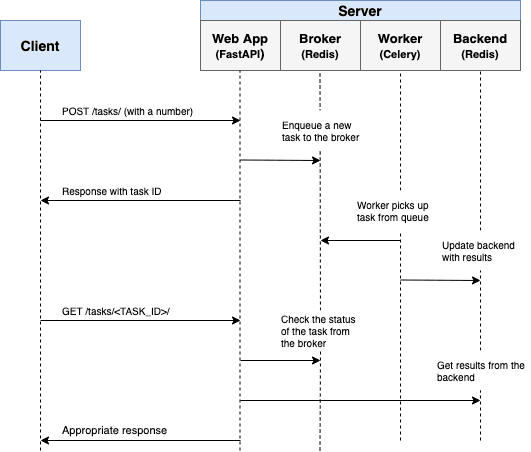Beyond Basic Skills: How to Expand Your Capabilities and Find New Approaches to Work
C-like languages.
It is not about the need to be able to write code in C++, C# or Java. But it will be extremely useful in the work if you understand the syntax and development basics of at least one of the C-like languages. These languages are quite complex, and in order to become a developer, the skill level must be very deep. But if you do not go into development, it is enough to get acquainted with these languages even at the “beginner” level in order to understand how the backend part is built or sometimes look at the code to understand the system. For those who are not familiar with these languages, I can say that they are indeed similar in many ways. If you managed to learn one of them, then understanding what is happening in the code written in other languages will be quite easy.
Here I will also note that the ability to “look” at the code for a system analyst is also a big plus. Of course, this is not a necessary skill, but I can say that it helps to find more approaches to solving a problem, even if you only touch the code in “view” mode.
Databases.
In my opinion, this is a very underrated skill, especially among systems analysts. Apart from writing procedures and functions, the ability to write a good sample is already a big advantage, which often helps in working with data, test cases and reproducing problems.
The skill of writing scripts in the database opens up even more possibilities. For example, the data may not be so simple to process, and writing a good script for pre-analysis or post-analysis makes the work several times more efficient.
It is enough to know at least one language from the SQL extensions: PL/SQL, PL/pgSQL, etc. The approach to working with databases, especially when it comes to system analysis, is based on common rules and similar syntax. Despite the differences in database architecture, if you have worked with a DB before, it will be much easier to do this in the new DBMS.
System integration and work with API
Understanding the architecture, logic and technology of interaction between systems is essential for both a system analyst and a developer, regardless of the product being developed. From my own experience, I can say that you always and everywhere encounter integration tasks.
You need to have several mandatory skills. First, you need to master the SOAP protocol and REST API. You need to understand the differences, principles and architecture of interaction. Practice is very important here. It is important to be able to compose, describe a request and response. You also need to master the necessary tools, for example, Postman or SoapUI.
The next required skill is understanding how message queues and brokers work. You can do without practice to begin with, but you need to thoroughly study tools like Kafka and Rabbit MQ. In my opinion, a system analyst needs to have an idea of what is happening “inside”, as well as what may be required from you if we are talking about integration tasks in this part. On the developer's side, immersion should certainly be on a different level, which depends on how deeply you will have to interact with this.
Python
There is a lot to say about knowledge of this development language. Python can be called a basic language for data analysis, and it can be used to solve a huge range of tasks both for a system analyst and a developer. These tasks can concern many areas, but I would like to highlight the automation area. Many tasks related to manual work or large labor costs can be solved by writing even small scripts in Python.
I will also add that this language is extremely easy to learn, even if you have not previously encountered development. If you compare it with Java or C++, you can note that the simplicity of its writing is immediately visible.
PlantUML
It is worth noting that knowledge of UML, even if you are not familiar with PlantUML, is already very useful and will greatly help you in your work. Based on my experience, it is PlantUML that helps to better understand the logic of constructing diagrams and build more complex schemes.
PlantUML offers many possibilities. Versioning can be used, and PlantUML is also popular for the Documentation as Code approach. In addition to building UML diagrams directly, PlantUML can be used to build other diagrams. This can be a mindmap or a graphical display of json.
This list can be supplemented with other skills. For example, HTML. The text markup language is used to solve various problems in almost every product. Knowledge of BPMN notation may also be useful, which is extremely common for visualizing business processes.
All of the above skills are not mandatory for every system analyst or developer, unless the tasks you face require it. But the better you understand the system, its architecture and operating principles, the more approaches you will be able to find to solve problems.
My social media channels:
In conclusion, I will share some tips that will help you learn the skills mentioned in this article. Good luck!
C++, Python and any development language. If you have learned any one language, then learning the rest is much easier. To understand the basics, you will only need to watch open-access lessons. Then, practice is very important. Of course, it is worth noting that if you have not worked with technical skills before, then there may be a need for a deeper dive.
Databases. First, you need to deploy the DBMS you want to start working with locally. There are many step-by-step tips for this. Next, you need to start creating, changing, and deleting tables. After that, you need to get familiar with the basic commands and try to write your first selections. As in the first point, the level of immersion depends on how much practice you have had and how complex queries you were able to write.
Integration of systems and work with API. To work with REST API and SOAP, I recommend starting with installing Postman. Then you can use the official Postman documentation and practice building and sending various requests. You can use test servers and not deploy them locally. References: “Designing Web APIs” by Arnaud Loret.
As for Kafka or Rabbit MQ, I recommend starting with a deep study of the theory. References: “Apache Kafka. Stream Processing and Data Analysis” by Gwen Shapira, Todd Palino, Rajini Sivaram, Krit Petty. “Stream Processing Real-Time Pipeline” by Andrew J. Pseltis.
PlantUML. I highly recommend the official website and documentation. https://plantuml.comThere is some theory in the book “Development of Software Requirements” by Wiegers Karl, Beatty Joy.



